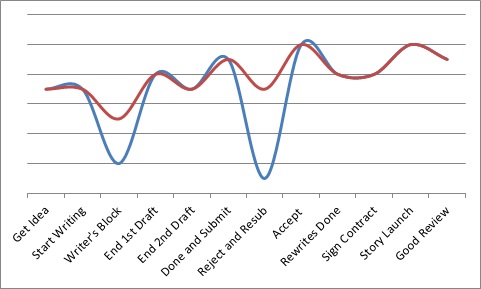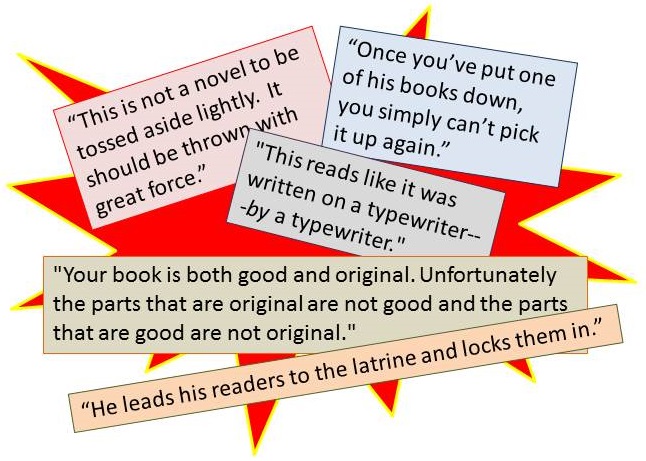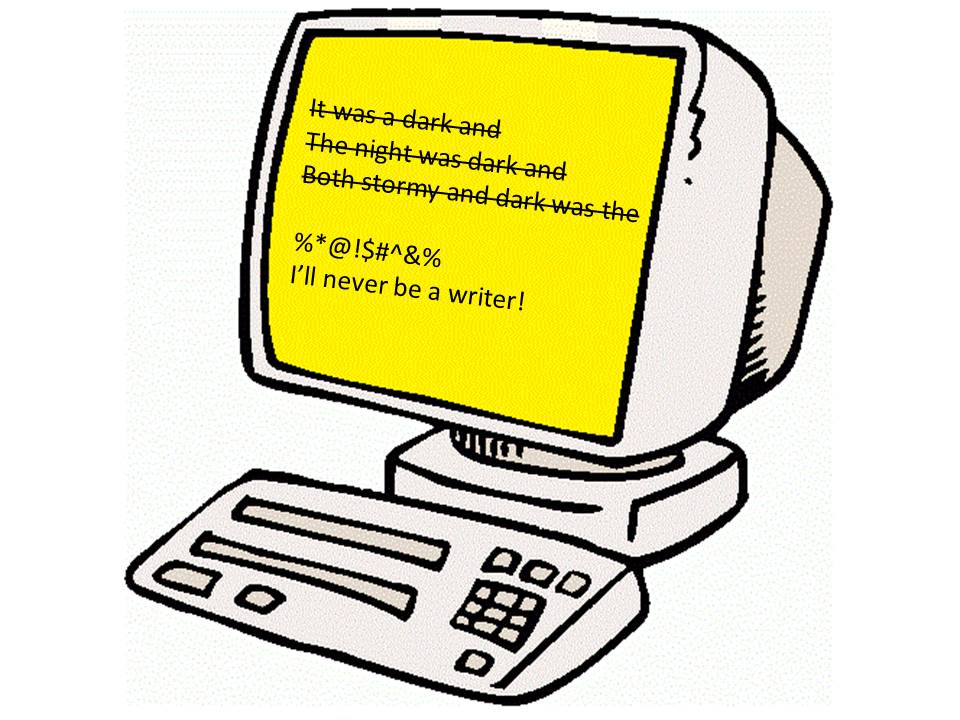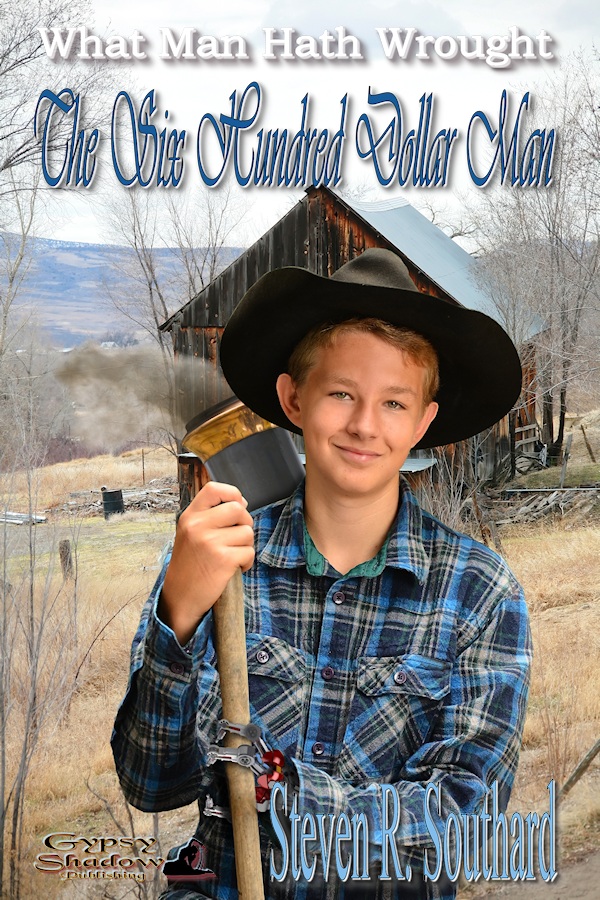Three days after the party and I’m still recovering. No, not really. It was a Facebook party to celebrate the launch of the anthology 20,000 Leagues Remembered. No music, no dancing, relatively few drinks.
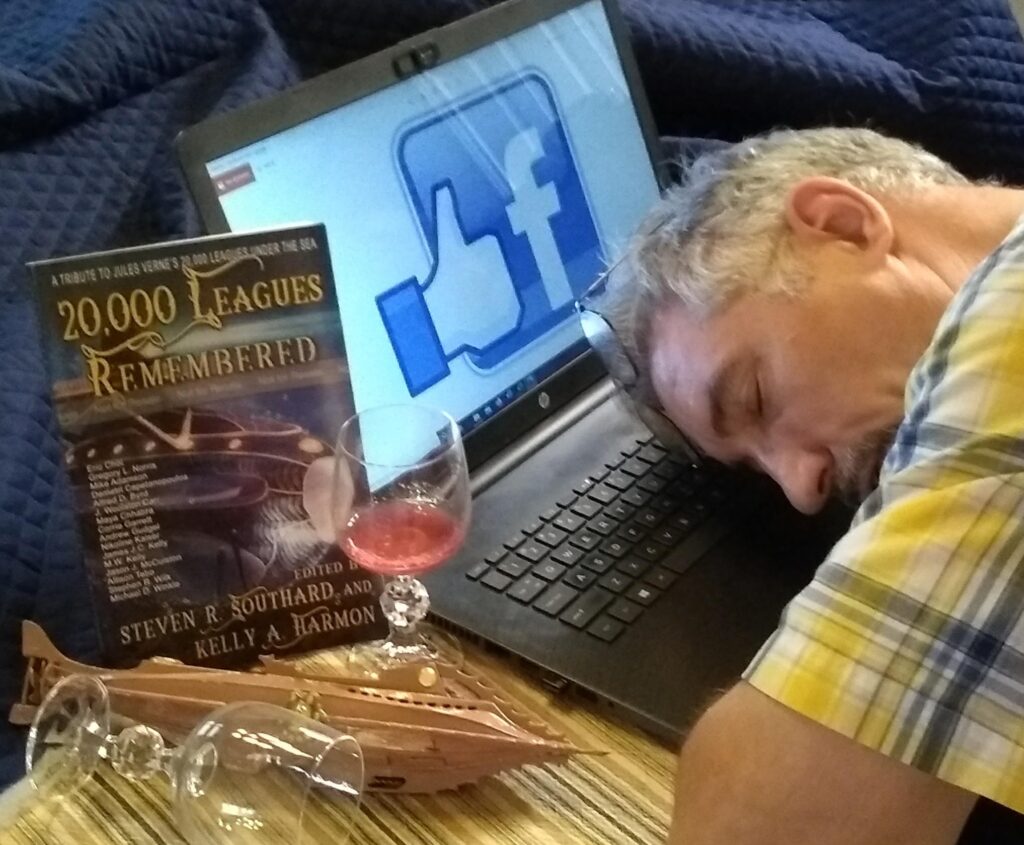
We held it last Thursday night, the first Facebook party I ever attended, and I was one of the two hosts. We had 32 attendees, including both co-editors (Kelly A. Harmon and me), and 7 of our 16 authors.
Much credit goes to those authors, who kept things interesting by posting fun facts about themselves and their stories. I heard feedback from one attendee who said the author bios were the best part of the party.
We gave away prizes, some randomly based on numbers of comments and shares, and some based on correctly answering trivia questions. Prize winners got to choose from among Pole to Pole Publishing’s collection of anthologies.
Prior to the party, I’d been thinking about the wide variety of settings for the anthology’s stories, and made a map of all of them. I posted the map during the party and people seemed to like it. One party-goer said all anthologies should make similar maps!
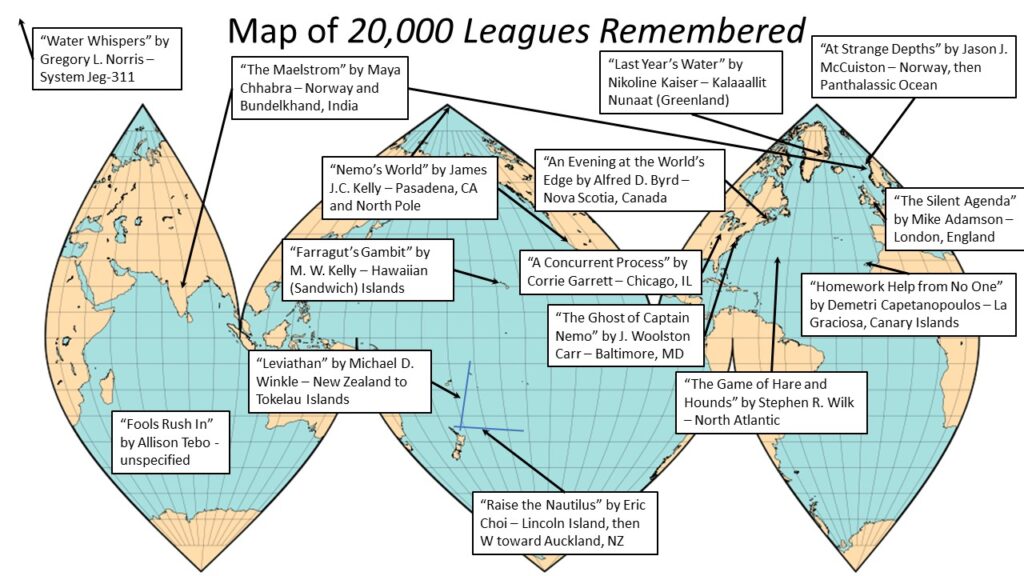
One of my daughters is particularly talented with 3D printing and has printed models from my various stories before, pictured here, here, here, here, and here. Recently, she made a near-replica of the submarine pictured on our anthology’s cover. I’m to blame for the poor paint job, but still. Kinda cool.

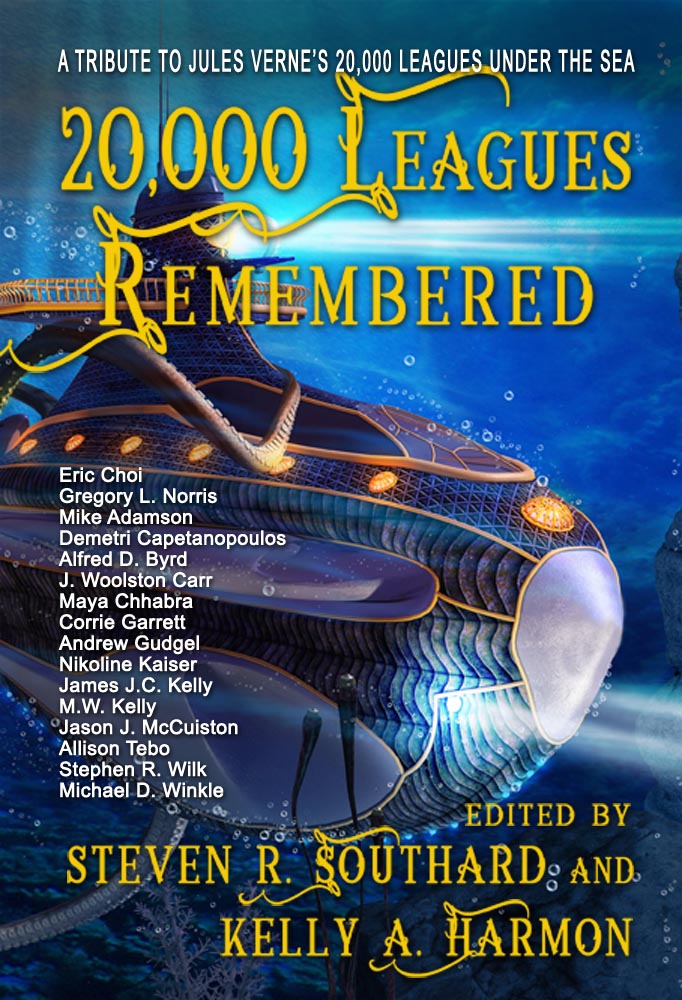
If you missed the party, you can still enjoy the retrospective here.
Grand Prize Still Up for Grabs!
Also, a grand prize is still available! Here’s how you can earn it, simply by posting book reviews during the month of August 2020. Post your reviews of 20,000 Leagues Remembered and any other anthology from the Pole to Pole Publishing archives on Amazon, Goodreads, Barnes & Noble, your blog, and any other online public forum. Email Pole to Pole Publishing at submissions(‘at’ symbol)poletopolepublishing.com with the URLs of your reviews. Each posted review at each public site earns you 1 point, but reviews of 20,000 Leagues Remembered earn 2 points each. (The co-editors of that anthology reserve the right to judge what constitutes a legitimate review.)
If you post the most reviews during the month of August, you’ll win…wait for it…3 (yes, three) books of your choice from Pole to Pole Publishing, in either ebook or paperback format.
I’d like to win that prize myself, but, <heavy sigh> one of the few people in the world who isn’t eligible for it is—
Poseidon’s Scribe

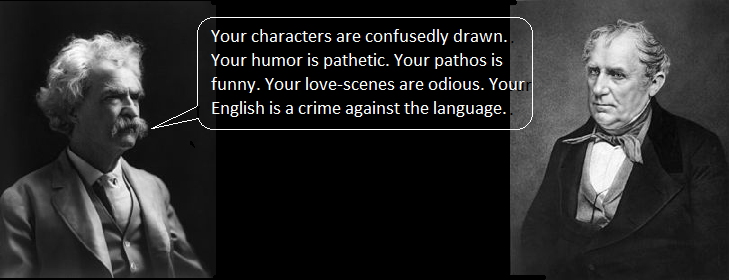 In Twain’s acerbic style, he starts by accusing three Cooper-praising reviewers of never having read the books. He then lays into Cooper, saying, “…in the restricted space of two-thirds of a page, Cooper has scored 114 offenses against literary art out of a possible 115. It breaks the record.” Twain asserts there are 19 or 22 rules “governing literary art in domain of romantic fiction” and says Cooper violated 18 of them. He lists those 18 rules.
In Twain’s acerbic style, he starts by accusing three Cooper-praising reviewers of never having read the books. He then lays into Cooper, saying, “…in the restricted space of two-thirds of a page, Cooper has scored 114 offenses against literary art out of a possible 115. It breaks the record.” Twain asserts there are 19 or 22 rules “governing literary art in domain of romantic fiction” and says Cooper violated 18 of them. He lists those 18 rules.